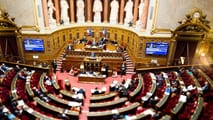Right to Asylum: the Court of Justice of the European Union defines religious persecution and reinforces freedom of religion.
On 5 September 2012, the Court of Justice of the European Union (CJEU) in Luxembourg passed an important sentence in favour of religious freedom by defining what type of infringement on freedom of religion justifies granting the status refugee in accordance with European Directive 2004/83/EC of 29 April 2004 on the Status of Refugees (Bundesrepublik Deutschland Stop / Y and Z, C-71/11 and C-99/11). According to this directive, Member States of the European Union should in principle grant refugee status to foreigners who face persecution because of their race, religion, nationality, political opinion or membership of a social group in their country of origin.
This case concerns two Pakistani nationals belonging to the Ahmadi Muslim minority (a minority not recognized by the Muslim majority) and seeking asylum in Germany because, according to the Pakistani Penal Code, they are liable to up to three years imprisonment if they claim to be Muslims, preach or try to spread their religion. The German authorities have rejected their application on the ground that the restrictions on the practice of religion in public imposed on Ahmadis were not "persecution" in the eyes of the right of asylum. Both applicants then complained to the German administrative courts, arguing that the German authorities' position was contrary to Directive 2004/83/EC. The case was submitted to the Federal Administrative Court. The Court decided to stay the proceedings in order to ask the Court of Justice of the European Union – which has the responsibility of interpreting directives – to specify what religious persecution means under the 2004 directive.
The Luxembourg Court therefore had to rule on the common European practice of granting asylum for religious reasons only in case of extreme persecution, that is to say, when the physical integrity of the person is at risk solely because of his religious affiliation (the "core" of religious freedom). With this practice, many asylum applications are rejected because applicants can escape persecution if they practice their religion in private or in secret in their country of origin. For example, converts from Islam to Christianity are sent back home because they are likely to escape the persecution if they keep their conversion secret.
The ECLJ welcomes this decision of the Luxembourg Court which rejects this narrow interpretation of religious freedom and recalls that the fundamental right to religious freedom encompasses the right to manifest one's religion in public and collectively. The Luxembourg Court noted that, according to Council Directive 2004/83/EC, some infringements of the right to manifest one’s religion in public also justify granting refugee status, provided that such infringements have a sufficiently serious degree of severity and that the public events that may cause these attacks are prescribed by religion. The Luxembourg Court has also asserted that national authorities may not require an asylum seeker to abandon public practice of religion to avoid a risk of persecution.
This official interpretation of Directive 2004/83/EC has authority on all Member States of the European Union with respect to all applications for asylum on grounds of religious persecution, regardless of their religion. Therefore, it applies to the many Eastern Christians prevented from practicing their religion in public. This interpretation pursues the approach developed by the resolutions of the European Parliament (20 January 2011) and the Parliamentary Assembly of the Council of Europe (27 January 2011) on Eastern Christians’ persecutions. These resolutions requested States to take religious persecution into account as a ground for asylum, without encouraging minorities to leave their country.
The definition of the scope of freedom of religion by the Court of Luxembourg has a general impact that transcends the facts of these cases. This reminder of the public dimension of religious freedom opposes the widespread tendency to restrict religious freedom to the private sphere, to the mere freedom of belief and worship.
This judgment is also welcome in the European context because of the growing hostility against the public expression of religion, even if we assume that all forms of public expression of religion are not equivalent. It was delivered the day after a highly publicized hearing before the European Court of Human Rights (Strasbourg) in cases against the United Kingdom where the prohibition for Christian by their employers visibly to wear a small cross around the neck on their workplace was at issue (Cases Eweida and Chaplin against the United Kingdom). The applicants, one of which is Coptic, were severely punished by their employer (suspension without pay; mutation and loss of employment) because they refused to remove or hide their crosses.
The British national courts ruled in favour of the employers. Before the European Court, the British Government justified the legality of the ban, arguing that the religious freedom of these women was respected because they are "free to resign" or "manifest their religion in private."
Thus, if the British Government was right, Mrs Eweida and Mrs Chaplin’s situation was not fundamentally different from that of religious minorities in Muslim countries: the only difference lies in the degree of severity of the persecution.
* * *
The European Centre for Law and Justice (ECLJ) is an international, Non-Governmental Organization dedicated to the promotion and protection of human rights. The ECLJ has held special Consultative Status before the United Nations/ECOSOC since 2007. The ECLJ advocates in particular the protection of religious freedoms and the dignity of the person with the European Court of Human Rights and the other mechanisms afforded by the United Nations, the Council of Europe, the European Parliament, and the Organization for Security and Cooperation in Europe (OSCE).
The ECLJ bases its action on “the spiritual and moral values which are the common heritage of [European] peoples and the true source of individual freedom, political liberty and the rule of law, principles which form the basis of all genuine democracy” (Preamble of the Statute of the Council of Europe).









